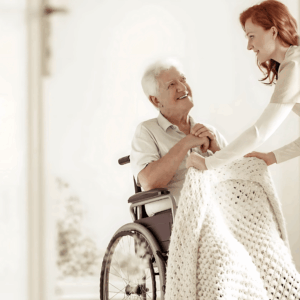Parkinson’s disease is one of the most common adult neurological conditions, affecting an estimated 10 million adults globally, and is not confined to those in aged care or ageing in place.
Despite its prevalence and increased awareness through the work of public service campaigns and the efforts of magnates such as Muhammad Ali and Michael J. Fox, the disease is often misunderstood. It is important to be aware of the facts so that you can optimise care and maximise quality of life. Here are some of the most common misconceptions:
Myth: Parkinson’s only affects movement.
Fact: Parkinson’s disease affects multiple areas of the brain and thus results in many symptoms. Non-motor symptoms can include impaired sense of smell, sleep disorders, cognitive difficulties, constipation/ bladder problems, sexual dysfunction, fatigue, pain, anxiety and depression.
Myth: Parkinson’s only affects older people.
Fact: While the majority of patients develop the condition in their fifties or early sixties, and may result in increased need for in home care services or aged care services, about 10% of people are diagnosed before age 40.
Myth: All individuals with Parkinson’s disease have tremors.
Fact: While a tremor is the most recognised symptom of Parkinson’s disease, approximately 30% of sufferers never experience any tremors.
Myth: Parkinson’s disease can “flare up” unexpectedly.
Fact: Although symptoms may fluctuate throughout the day, the progression of the disease is very slow. If symptoms worsen over days or weeks, infections, medication side effects, stress or another medical problem may be to blame.
Myth: Only medical intervention helps.
Fact: Lifestyle modifications, including regular exercise, muscle strengthening therapies and a healthy diet, can reduce the severity of symptoms and improve quality of life. A study published in Geriatrics and Gerontology International found that Parkinson’s patients who exercised for one-hour every week reported improvements in daily activities while their non-active counterparts did not. Exercise is well supported by in home care services and aged care services, and an easy thing to implement for a loved one if you are the nurse at home.
Myth: Parkinson’s is genetic.
Fact: Only 5-10 percent of cases have a true genetic link. The cause of Parkinson’s disease is unknown. While genetics may play a role, many researchers also believe that environmental factors impact risk.
Myth: Parkinson’s disease is fatal.
Fact: Parkinson’s disease itself will not cause death. Swallowing problems make sufferers more prone to respiratory infections like pneumonia, but many people never experience this and can live happily ageing in place for decades after diagnosis.
Learn more about our Parkinson’s care here.
Resources:
As a leading age care provider, Home Care Assistance offers tailored in-home care services for older Australians, enabling them to live happier and healthier lives in the comfort of their own homes.
We offer private and government subsidised Care Packages and have office locations that are a registered NDIS provider. Our Care Workers undergo extensive training in order to deliver unmatched in-home aged care services where people can continue ageing in place. We are proud ambassadors of the My Aged Care government funded aged care program, enabling Australians to successfully navigate the process and gain approval for in-home care support packages. Home Care Assistance offers hourly care, specialised care, Alzheimer’s and Dementia care, hospital to home care, and 24 hour in home care.













